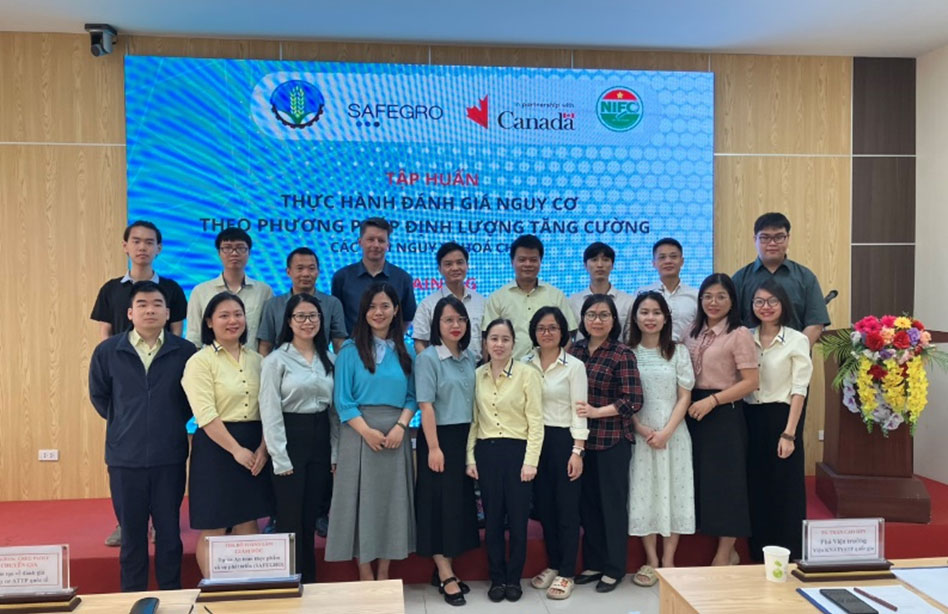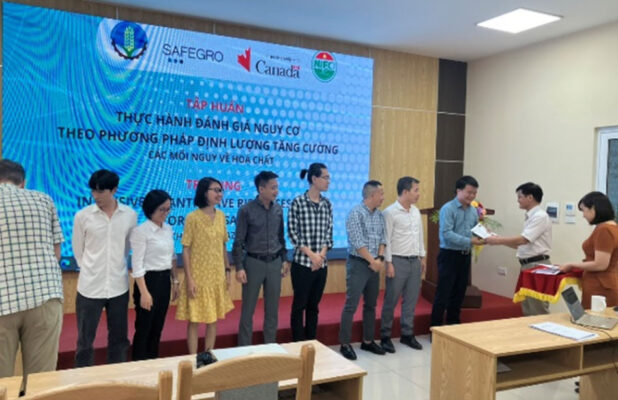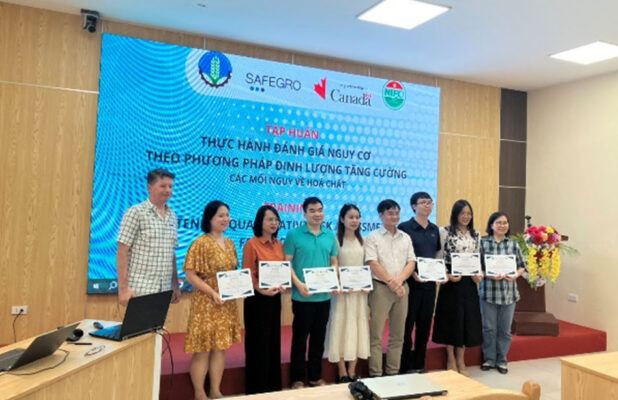The SAFEGRO Project, funded by Global Affairs Canada, recently wrapped up a successful 4-day training course (1-4/4/2024) focused on Intensive Quantitative Risk Assessment for Chemical Hazards, marking a significant stride in fortifying food safety measures in Vietnam.

This initiative supports ongoing efforts in Vietnam aiming toward the establishment of a robust risk assessment network, engaging key stakeholders from government agencies, academia, and industry associations. Investing in specialized training programs like this course holds the promise of long-term benefits for public health, consumer confidence, and economic stability.
Dr. Brian G. Bedard, Director of Food Safety and Animal Health at Alinea International, stressed the importance of empowering professionals to tackle emerging threats in food safety. “Given the complexity of global food safety challenges, initiatives like this training course are pivotal for human resource development, protecting public health, and fostering sustainable development for Vietnam.” he noted.
The course, held at the National Institute for Food Control (NIFC) and delivered by SAFEGRO’s international expert, Mr. Greg Paoli (Risk Science International’s Principal Risk Scientist and CEO), with the participation of risk assessors from various relevant entities under the MARD, MOH and MOIT, covered a range of essential topics, including theoretical principles and practical exercises on hazard identification, exposure assessment, dose-response relationships, and establishing exposure thresholds and hazard characterization. Emphasis was placed on chemical hazards, including carcinogens, acute and chronic exposure scenarios, and allergens. The training also reviewed essential probability concepts for food safety risk assessment, including Monte Carlo simulation techniques. Throughout the course, participants engaged in hands-on activities in QRA, utilizing tools such as FDA-iRISK software platform www.irisk.foodrisk.org) to analyze food safety risks comprehensively.
Mr. Do Thanh Lam, Project Director of SAFEGRO, underscored the training’s significance in enhancing the nation’s capacity to enforce science-based regulations and promote safe food production practices. “By enhancing our proficiency in quantitative risk assessment, we are better equipped to safeguard public health”, he emphasized.
Dr. Tran Cao Son, Deputy Director of NIFC under the MoH, hailed the training’s value in supporting efforts to ensure the safety and quality of food products available to consumers across Vietnam. He proposed that the Project consider and include in its TA plan to provide relevant ministries with further training courses on other topics of interested, such as microbial hazards, which could include appropriate research designs, using real data when available.


The event demonstrated the SAFEGRO Project’s commitment to fostering collaboration among stakeholders to strengthen food safety regulations and practices. By equipping professionals with specialized expertise, the project aims to instill a culture of vigilance and responsibility in the production and trade of agricultural products, thereby enhancing consumer confidence and fostering sustainable growth.
As Vietnam continues to prioritize food safety as a crucial component of its development agenda, initiatives like the SAFEGRO Project’s training course play a critical role in building institutional capacity and driving positive change in the nation’s food safety landscape.

